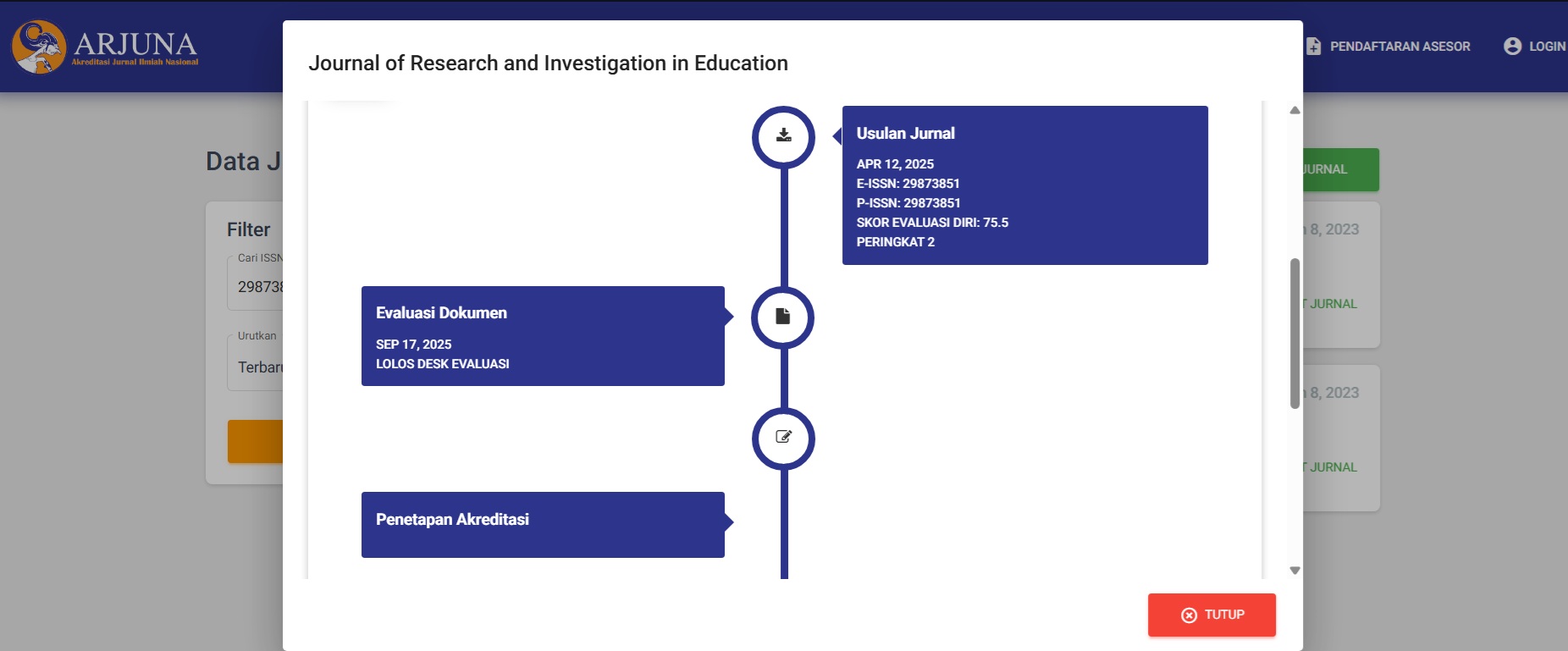The Influence of Peers on Learning Motivation Class X Hospitality Student at SMK N 9 Padang
DOI:
https://doi.org/10.37034/residu.v2i1.159Keywords:
Peers, Learning Motivation, Hospitality, Student, School EnvironmentAbstract
This study aims to determine the influence of peers on learning motivation of students in class X Hospitality SMK 9 Padang Semester Even in the 2021/2022 academic year. This type of research is descriptive quantitative correlational research with a population of 204 respondents, and the sample is taken using the proportional random sampling method so that the sample obtained is 135 respondents. The instrument used in this research is a questionnaire compiled according to the Likert Scale model. The type of data in this study is primary data obtained from SMK N 9 Padang. The analytical tools used are Microsoft Excel 2010 and SPSS version 20. Based on the research that has been carried out with the results of the calculated hypothesis, the rcount value is 0.222 while the rtable value is 0.169 because the rcount value is greater than the rtable value (0.222 > 0.169) it can be concluded that "at the same time is the answer to the research objective, namely that there is a "positive and significant influence between peers on the learning motivation of class X students Hospitality SMK N 9 Padang.
Downloads
References
Smith, A. L, & McDonough, M. H. (2008). Peers. In A. L. Smith & S. J. H. Biddle (Eds.), Youth physical activity and sedentary behavior: Challenges and solutions (pp. 295–320). Human Kinetics. https://doi.org/10.5040/9781492595601.ch-012
Lynch, M., & Cicchetti, D. (1997). Children's relationships with adults and peers: An examination of elementary and junior high school students. Journal of School Psychology, 35(1), 81-99. https://doi.org/10.1016/S0022-4405(96)00031-3
Howe, C. (2009). Peer groups and children's development. John Wiley & Sons.
Santrock, J. W. (2004). Life Span Development: Perkembangan Masa Hidup Jilid I. Jakarta: Penerbit Erlangga.
Junita, D., Suarman, S., & Kartikowati, S. (2018). Accomplishment motivation and soft skill related to learning achievement. Journal of Educational Sciences, 2(2), 83-89.
Sudirman, A. M. (2018). Interaksi dan Motivasi Belajar. Jakarta: Rajawali Pers.
Hancock, D. (2004). Cooperative learning and peer orientation effects on motivation and achievement. The journal of educational research, 97(3), 159-168. https://doi.org/10.3200/JOER.97.3.159-168
Ladd, G. W., & HERALD, S. L. (2009). Peers and motivation. In Handbook of motivation at school (pp. 337-362). Routledge.
Jovanovic, D., & Matejevic, M. (2014). Relationship between rewards and intrinsic motivation for learning–researches review. Procedia-Social and Behavioral Sciences, 149, 456-460. https://doi.org/10.1016/j.sbspro.2014.08.287
Uno, H. B. (2008). Perencanaan pembelajaran. Bumi Aksara.
Alderman, M. K. (2013). Motivation for achievement: Possibilities for teaching and learning. Routledge.
Coyl, D. D., Jones, R. M., & Dick, A. J. (2004). The influence of peer status and peer relationships on school-related behaviors, attitudes, and intentions among alternative high school students. American secondary education, 39-62.
Margono. S. (2005). Metodologi Penelitian Pendidikan. Jakarta: Rineka Cipta.
Supriyanto, A. S. (2010). Metodologi riset manajemen Sumber daya Manusia.
Sugiyono. (2007). Metode Penelitian Kuantitatif, Kualitatif dan R&D. Bandung: Alfabeta.CV
Arikunto, S. (2006). Prosedur Penelitian Suatu Pendekatan Praktek. Jakarta: PT. Rineka Cipta.
Sudijono, A. (2011). Pengantar evaluasi pendidikan. Jakarta: Rajawali Pers.
Santrock, J. W. (2011). Educational psychology. McGraw-Hill.

 Riwayat Akreditasi
Riwayat Akreditasi




